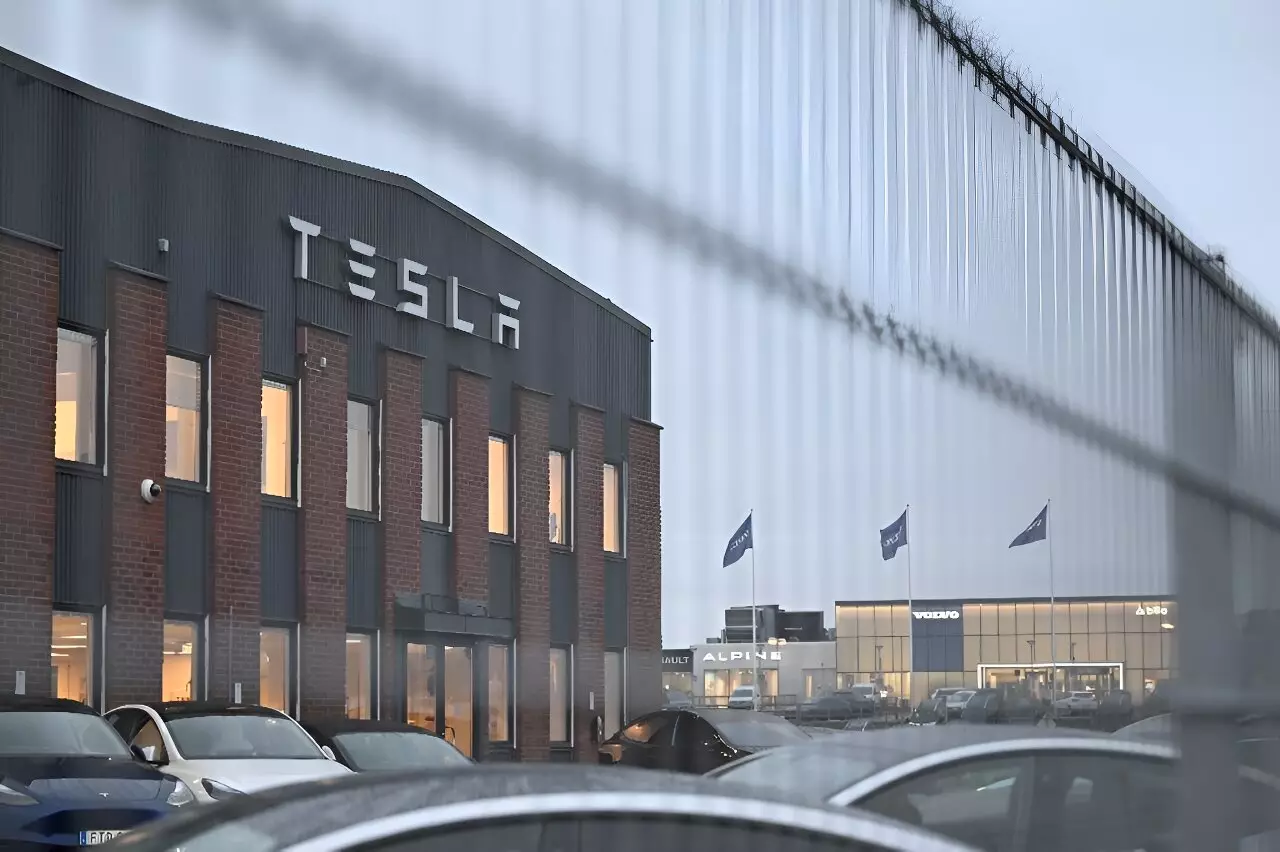Tesla, the electric carmaker led by Elon Musk, is facing a supply chain struggle in Sweden due to an ongoing labor strike. The strike, initiated by the metal workers’ union IF Metall, started after Tesla refused to sign a collective wage agreement. In support of the strike, Swedish postal workers have ceased deliveries to Tesla offices and repair shops, causing potential disruptions to Tesla’s new car deliveries.
The strike’s impact on new car deliveries is tied to the process of obtaining license plates for new cars issued by the Swedish Transport Agency. These license plates are currently delivered through mail carrier Postnord, which is participating in the strike. As a result, the strike may prevent new Tesla vehicles from hitting the road, compounding the challenges for the company.
Elon Musk, the CEO of Tesla, finally addressed the strike on social media platform X, formerly known as Twitter. In response to a user discussing the issue, Musk simply stated, “This is insane.” His comment highlights the frustration he feels regarding the disruption caused by the strike.
What initially began as a strike by 130 mechanics at 10 Tesla repair shops has now expanded to include other repair shops servicing Tesla and dock workers at Swedish ports. Nine other unions have also expressed support through “sympathy measures.” These developments indicate the growing scale and impact of the labor strike on Tesla’s operations in Sweden.
Despite the strike and its subsequent expansions, its overall impact has been reported as limited by several Swedish media outlets. IF Metall, however, has accused Tesla of employing strike breakers to bypass the labor action systematically. This accusation suggests that Tesla is actively trying to mitigate the effects of the strike through alternative means.
In response to the strike, Tesla has found alternative ways to transport new cars to Sweden, notably through road transportation. By shifting their delivery methods, Tesla is attempting to maintain its supply chain and ensure its customers receive their vehicles despite the ongoing labor dispute.
The labor market in Sweden operates based on negotiated collective agreements that cover almost 90 percent of all employees. These agreements are sector-specific and guarantee standard wages and working conditions. While these agreements have provided stability in the past, the current labor strike at Tesla highlights the challenges faced by companies operating within this framework.
As the strike continues, Tesla will need to navigate the complexities of labor relations in Sweden and find a resolution that aligns with the demands of the striking unions. Balancing the needs of the workforce with the company’s operational requirements will be crucial for Tesla’s long-term success in the country.
Tesla’s supply chain struggles in Sweden due to the ongoing labor strike underscore the difficulties faced by the company in managing its operations amidst labor disputes. The strike’s impact on new car deliveries and the accusations of strike-breaking have added complexity to the situation. However, Tesla’s exploration of alternative delivery methods demonstrates its determination to mitigate the effects of the strike. Ultimately, finding a resolution that satisfies both the striking unions and Tesla will be vital for the company’s future in Sweden.


Leave a Reply